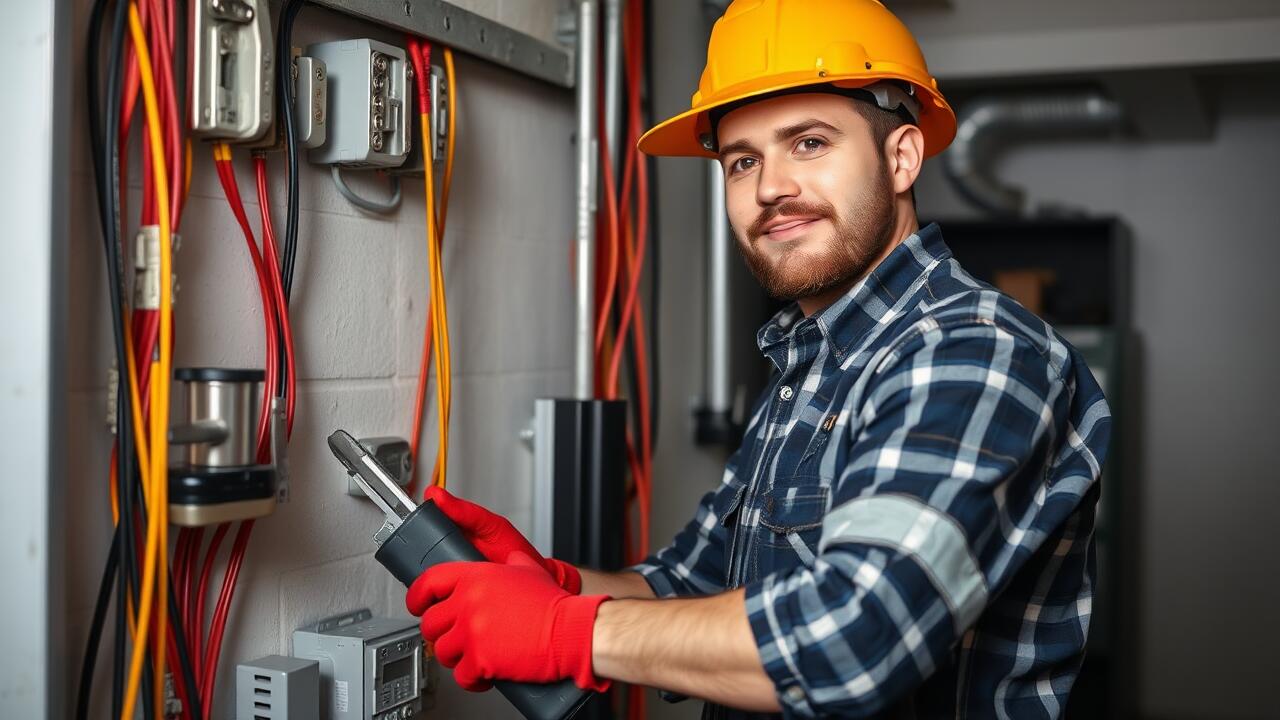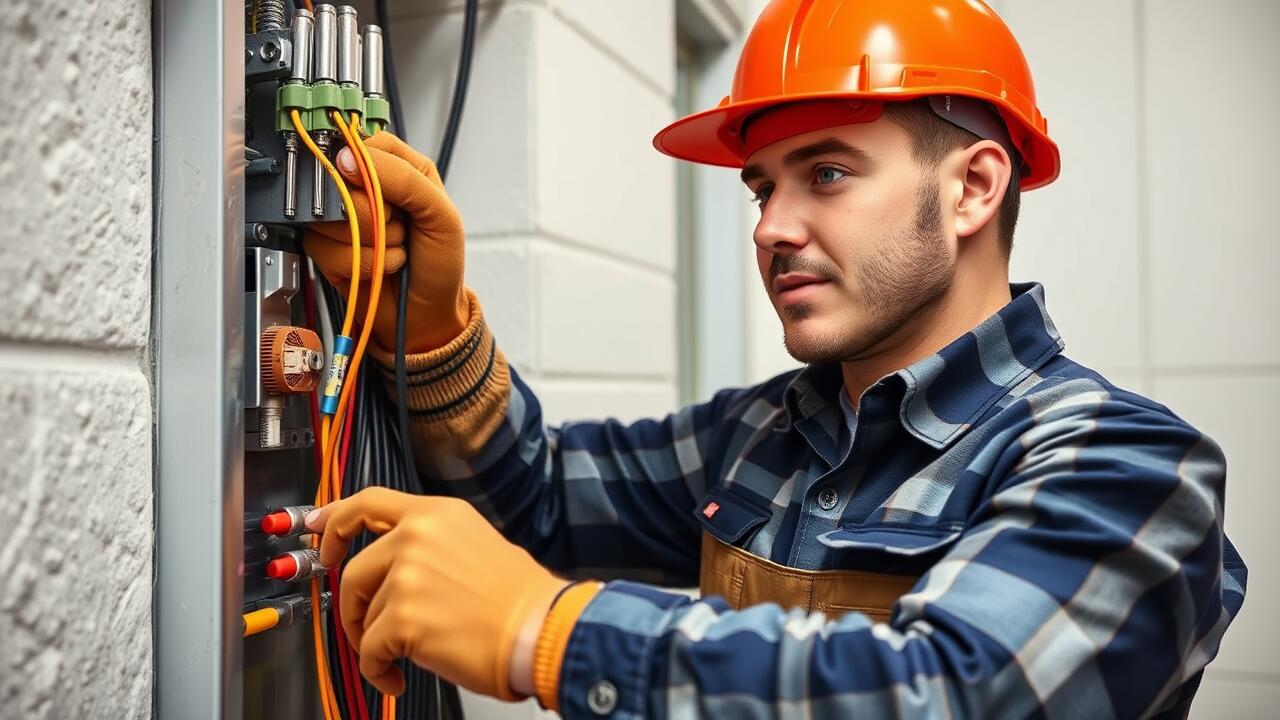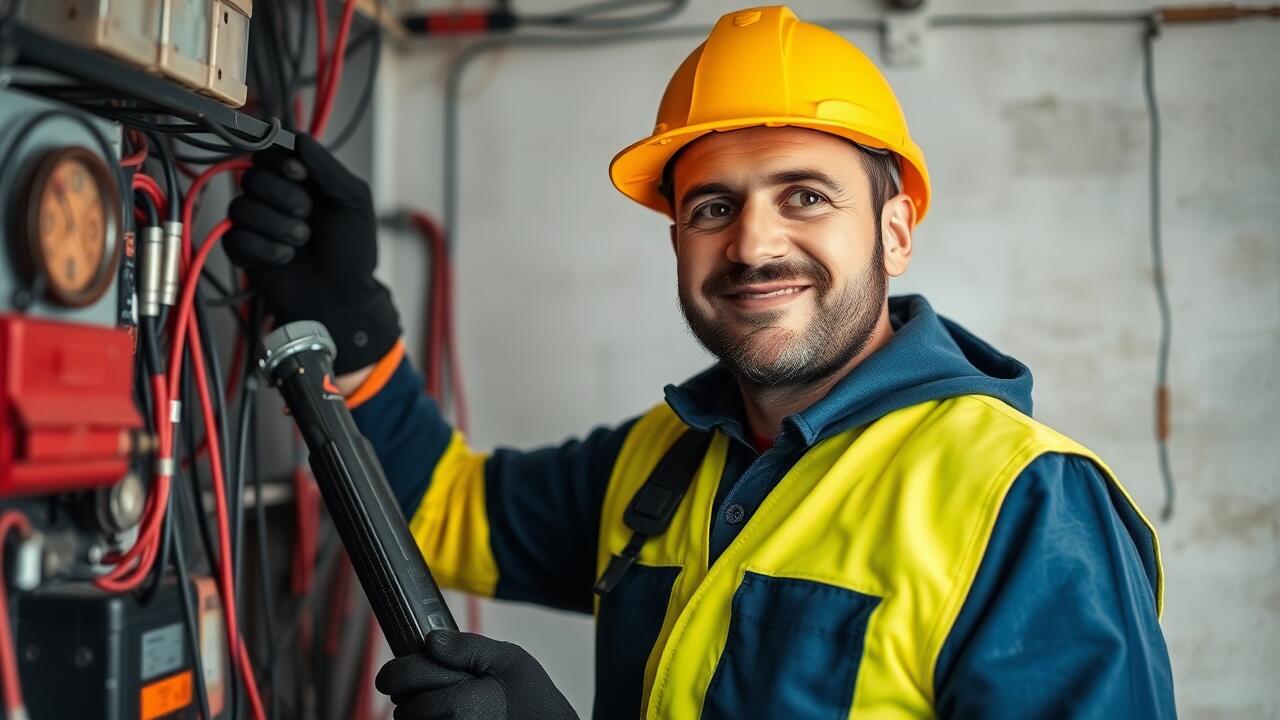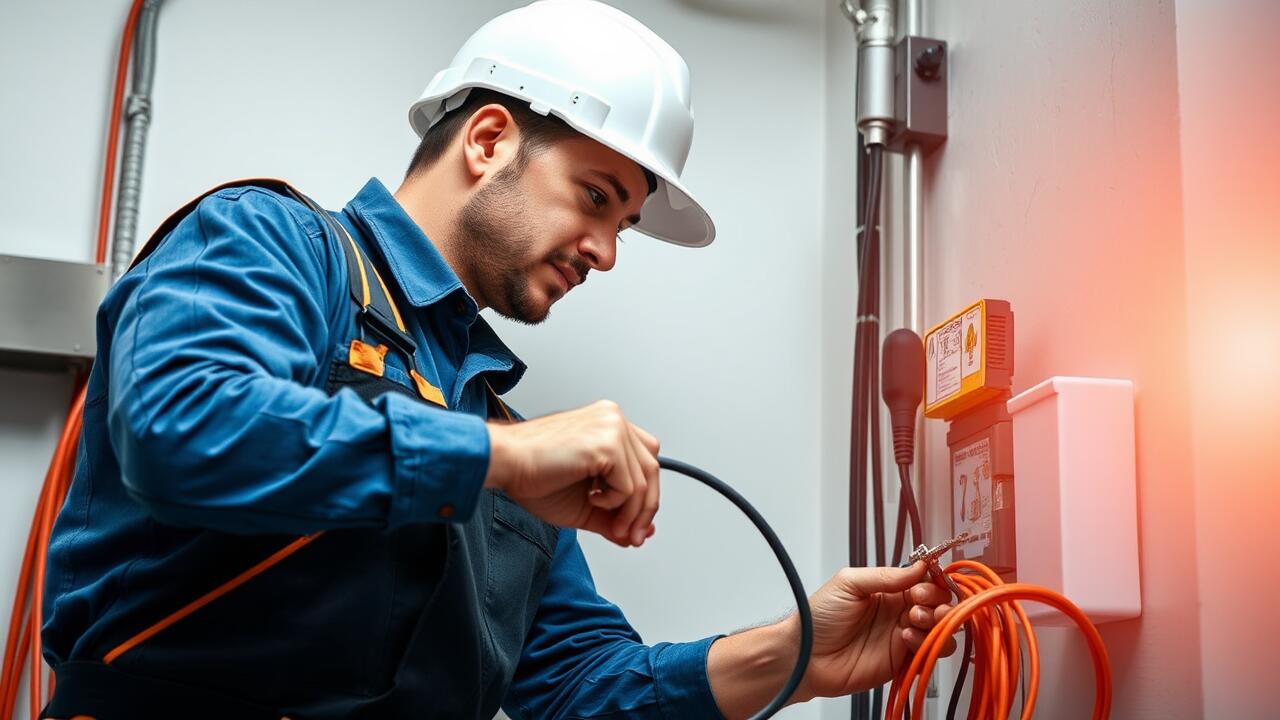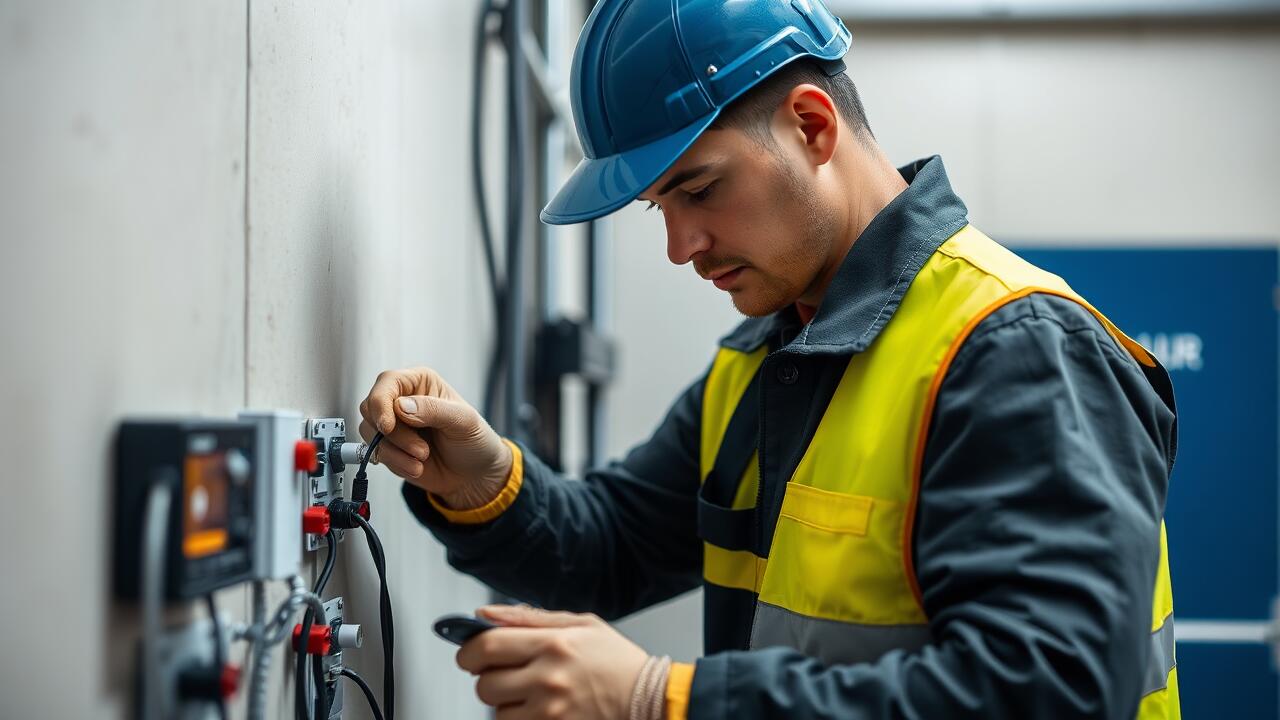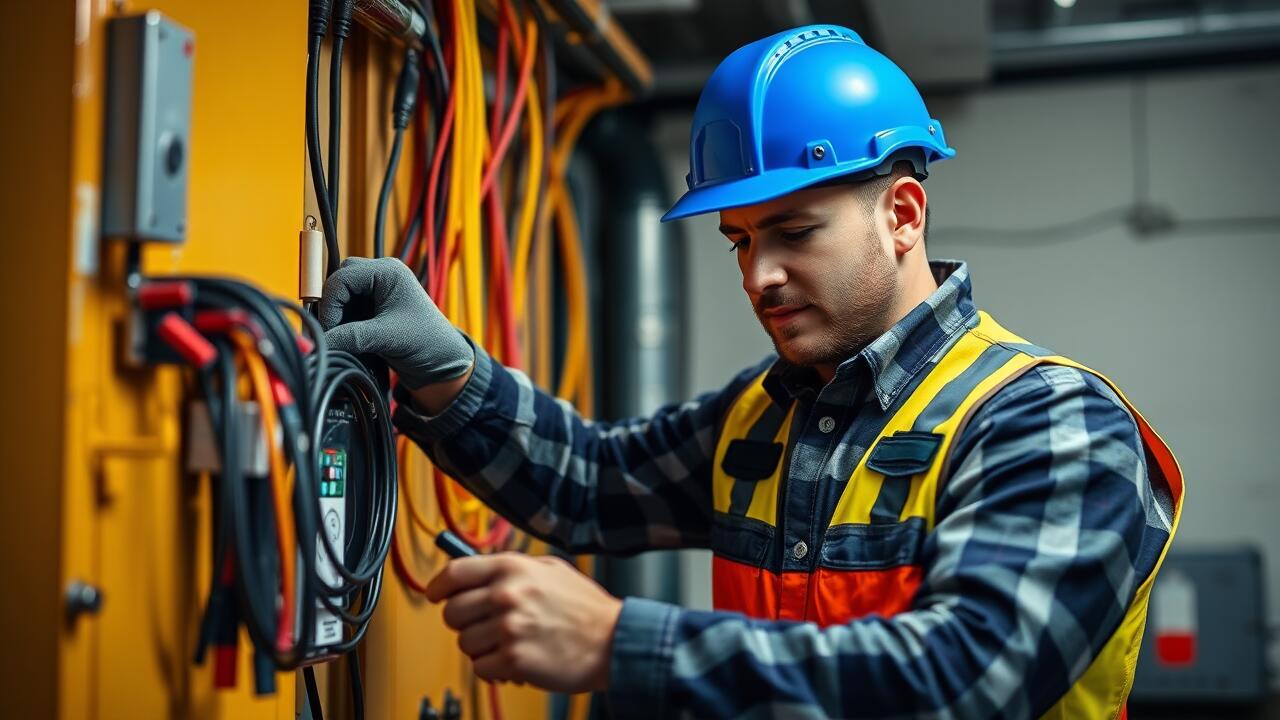
Managing Circuit Overloads
Managing circuit overloads is crucial for maintaining a safe home environment. Circuits can only handle a specific amount of electrical load, which varies based on the wiring and the circuit breaker. When too many devices draw power simultaneously, it increases the risk of overheating and potential fire hazards. Pay attention to warning signs such as flickering lights or buzzing noises from outlets. These may indicate that your circuit is working harder than it should. If you notice these signs, seeking the assistance of a qualified Electrician near me can help identify and resolve issues before they escalate.
To prevent circuit overloads, it is important to distribute electrical appliances evenly across different circuits. Avoid using multiple high-wattage devices on the same circuit. Instead, consider installing additional outlets or dedicated circuits for high-demand appliances. Regularly inspect your home’s electrical system to ensure it meets current safety standards. Consulting with an electrician near me may provide insight into necessary upgrades or repairs, ensuring your electrical system functions safely and efficiently.
Signs of Overloading and Solutions
Overloading occurs when too many devices draw power from a circuit, leading to potential hazards such as tripped breakers, flickering lights, and in some cases, electrical fires. Pay attention to frequently tripped circuit breakers as they are a clear sign that the load on your electrical system is too high. Other indicators include hot outlets or cords, a burning smell, or appliances that operate inconsistently. If you notice these warning signs, it’s essential to act promptly to avoid serious damage or danger.
To address circuit overloads, consider redistributing the electrical load across multiple circuits. This may involve unplugging unnecessary devices or using appliances during off-peak hours. If the problem persists or you find it challenging to manage the load, consulting an electrician near me can provide tailored solutions for your specific needs. An expert can assess your system, recommend any necessary upgrades, and ensure your home remains safe and efficient.
Maintaining Home Appliances
Regular maintenance of home appliances is crucial to ensure their longevity and efficient performance. Appliances like refrigerators, washing machines, and microwaves can experience wear and tear over time, leading to potential issues. Cleaning filters, inspecting hoses, and checking for any unusual sounds or leaks can help identify problems early. It is also beneficial to consult an electrician near me to help diagnose more complex issues that might not be easily noticeable during routine checks.
Proper usage also plays a significant role in maintaining appliances. Overloading machines can lead to premature failure. Following the manufacturer’s guidelines for load capacity and maintenance schedules can help avoid breakdowns. If you notice any irregularities or inefficiencies, seek advice from a qualified electrician near me, as they can provide tailored solutions to keep appliances in good working order. This proactive approach helps in maximizing the lifespan and efficiency of your household devices.
Best Practices for Electrical Appliance Care
Maintaining your electrical appliances can significantly extend their lifespan and improve their efficiency. Regularly check for frayed cords, worn-out plugs, or signs of overheating. Keep appliances clean and free from dust buildup, which can cause them to overheat. Ensure that you follow the manufacturer’s instructions for usage and maintenance. If you notice any irregular behavior, it may be wise to consult a qualified professional. Searching for an "electrician near me" can help you find someone who can address any underlying issues safely.
Another key aspect of appliance care involves proper usage practices. Avoid overloading electrical outlets with multiple devices, as this can lead to circuit damage. When using high-demand appliances, ensure they are plugged into outlets rated for their electrical requirements. Avoid yank or tug on cords when disconnecting appliances from outlets to prevent damage. Educate family members about the importance of electrical safety and supervise children when they are near electrical appliances. Doing so can help in preventing accidents and ensuring everyone in your home remains safe.
Handling Extension Cords Safely
Extension cords are convenient for extending power to areas far from outlets, but improper use can pose safety hazards. It's essential to select cords that are appropriately rated for the devices you intend to power. Check for any visible damage before use, as frayed cords can lead to shocking accidents or fires. Store cords in a manner that prevents tangling or crushing, and avoid running them through high-traffic areas where they can become tripping hazards.
When using extension cords, avoid daisy-chaining multiple cords together. This practice increases the potential for overload and reduces safety. If you find yourself frequently relying on extension cords, it might be time to consult an electrician near me to discuss permanent solutions. Keeping cords off the ground and away from water sources will also minimize risks. Always unplug cords when not in use to avoid energy waste and potential hazards.
Tips for Using Extension Cords Effectively
Extension cords can be handy tools for providing additional power sources in your home, but using them properly is essential for ensuring safety. Always choose cords that are rated for the voltage and amperage of the devices you plan to use. The length of the cord also matters; longer cords can lead to voltage drops, reducing the efficiency of your electrical devices. If you find yourself frequently relying on extension cords, it might be time to consult an “electrician near me” to assess your home’s wiring and electrical needs.
Avoid daisy-chaining multiple extension cords together, as this can create a fire hazard. Additionally, regularly inspect cords for fraying, cracks, or any signs of wear and tear. Keep cords away from high-traffic areas to minimize the risk of tripping and damage. If you need more permanent solutions for power distribution, an “electrician near me” can help install additional outlets or circuits to provide reliable electrical supply throughout your home.
FAQS
What are common signs of circuit overload in my home?
Common signs of circuit overload include frequent tripping of circuit breakers, flickering lights, dimming lights when appliances turn on, and the smell of burning wires or plastic.
How can I prevent circuit overload?
To prevent circuit overload, distribute appliances evenly across different circuits, avoid using multiple high-wattage devices on the same outlet, and consider upgrading your electrical panel if needed.
What are some best practices for maintaining home appliances?
Best practices for maintaining home appliances include regularly cleaning and inspecting them, following the manufacturer’s guidelines for use and maintenance, and scheduling professional servicing when necessary.
How often should I check my extension cords for safety?
You should check your extension cords for safety before each use and at least once a month if they are used regularly. Look for frays, cracks, or other damage.
Is it safe to use multiple extension cords together?
It is generally not safe to use multiple extension cords together, as this can increase the risk of overheating and fire. If you need more length, consider using a single, appropriately rated extension cord instead.
